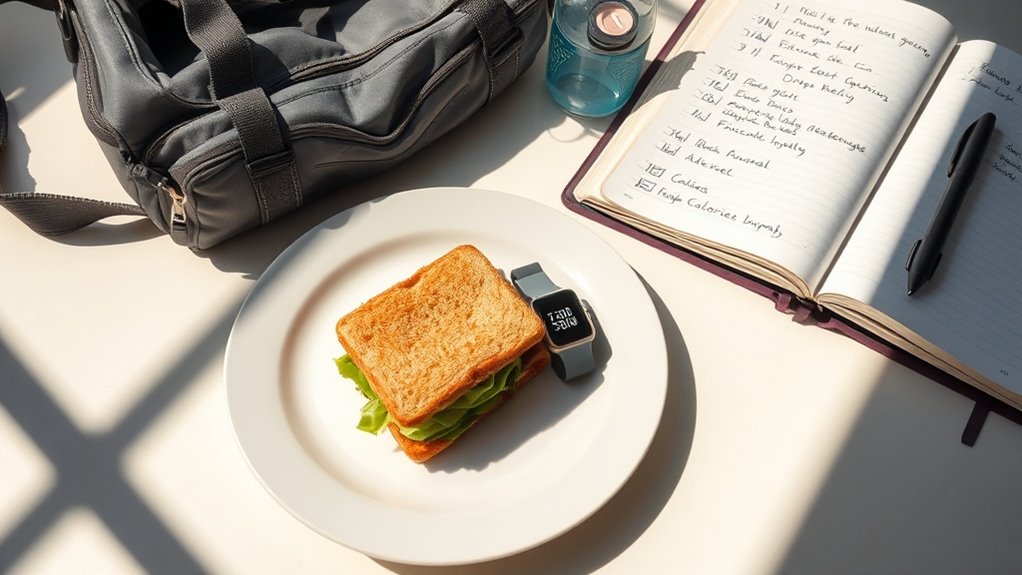Stop This ONE Habit and Watch the Pounds Melt Away!
Stop mindless snacking and watch the pounds melt away! It sneaks in extra calories that can sabotage your weight loss goals. Recognize your triggers, whether they’re emotional, social, or habitual, and replace those snacks with healthier options like fruits or nuts. Set specific times for snacking and practice portion control. Embrace mindful eating by slowing down and savoring each bite. You’ll not only enjoy your food more but discover more effective strategies to tackle this habit.
Understanding Mindless Snacking
While you might think snacking is harmless, mindless snacking can sabotage your weight loss efforts. It’s easy to munch on chips while binge-watching your favorite show or grab a cookie during a stressful workday. This one habit that prevents weight loss often sneaks up on you, leading to extra calories that add up quickly.
You may not even realize how much you’re eating when you’re distracted or bored. Instead, try to be more intentional about your snacks. Focus on what you’re eating, and choose healthier options. Food journaling can help you identify patterns in your eating habits and motivate healthier decision-making.
If you feel the urge to snack, consider whether you’re truly hungry or just looking for comfort. Engaging in mindful eating not only helps you stay on track but also fosters a deeper connection with your food.
The Impact of Snacking on Weight Loss
Mindless snacking can significantly impact your weight loss journey more than you might realize. Each time you reach for a snack without thinking, those extra calories can add up quickly, sabotaging your efforts.
You might feel a sense of belonging when sharing snacks with friends, but it’s important to be mindful of what and how much you’re eating.
Instead of grabbing chips or cookies during your next binge-watch session, consider healthier options like fruits or veggies. These choices not only satisfy cravings but also fuel your body positively. Additionally, practicing portion control can help manage snack consumption and prevent overeating.
Recognizing Triggers for Mindless Eating
How often do you find yourself reaching for snacks without even realizing it? Mindless eating can sneak up on you, often triggered by emotions, situations, or even just boredom. Recognizing these triggers is the first step toward breaking the cycle and finding a healthier path together.
-
Emotional moments: Stress, sadness, or even excitement can lead you to the pantry for comfort.
-
Social settings: Being around friends or family might prompt you to snack, even when you’re not hungry.
-
Routine habits: Watching TV or scrolling through your phone can make it easy to munch mindlessly.
In addition, practicing mindfulness techniques can help you become more aware of your cravings and the reasons behind them.
Strategies to Curb Mindless Snacking
Breaking free from mindless eating starts with implementing effective strategies that help curb those automatic snack habits.
First, keep healthy snacks within reach, like fruits or nuts, making it easier to choose better options.
Second, set specific times for snacking instead of grazing throughout the day; this creates a routine that helps you stay in control.
Third, drink water before reaching for a snack—sometimes, thirst disguises itself as hunger.
You can also try portioning out snacks instead of eating directly from the package; this way, you won’t accidentally overindulge.
Finally, engage in activities that keep your hands busy, like reading or crafting, to distract yourself from mindless munching. Additionally, food journaling can enhance your awareness of snack habits and support your weight loss goals.
Embracing Mindful Eating Practices
While you may not always realize it, embracing mindful eating practices can transform your relationship with food.
By slowing down and savoring each bite, you’ll discover a deeper connection not only to your meals but also to your body’s needs. Mindful eating encourages awareness and helps you tune into hunger cues, fostering a sense of belonging within yourself. Additionally, practicing portion control allows you to recognize fullness signals and prevents overeating.
-
Savor each bite: Take the time to appreciate the flavors and textures of your food.
-
Eliminate distractions: Turn off the TV and put down your phone to fully engage with your meal.
-
Listen to your body: Pay attention to how different foods make you feel, both physically and emotionally.
Long-term Benefits of Breaking the Habit
When you let go of unhealthy eating habits, you pave the way for significant long-term benefits that extend far beyond weight loss.
You’ll likely notice improved energy levels, making it easier to engage in activities with friends and family. This shift not only enhances your physical health but also fosters stronger connections with those around you.
As you embrace healthier choices, you cultivate a sense of community among others who share your journey.
You’ll find support in like-minded individuals, creating bonds that encourage accountability and celebration of progress. Additionally, breaking the habit can lead to better mental clarity and mood, allowing you to enjoy life more fully.
Ultimately, these benefits create a ripple effect, inspiring others to join you and reinforcing your commitment to a healthier lifestyle.
You’re not just changing your habits; you’re building a vibrant, supportive environment that uplifts everyone involved.





